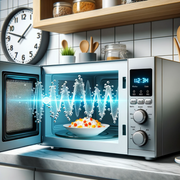Circuit Breakers: The Silent Protectors of Our Homes
Electricity is a marvel that powers our modern world, but it also comes with its dangers. That's where circuit breakers come into play. These unsung heroes work tirelessly behind the scenes to ensure our safety, preventing potential fires and electrical shocks.
Understanding Circuit Breakers
Circuit breakers are essential components in our electrical systems. They act as guardians, monitoring the flow of electricity and intervening when things go awry.
How Do They Work?
At their core, circuit breakers are designed to detect surges in electrical current. When the flow of electricity exceeds a safe level:
- The circuit breaker senses the surge.
- It then automatically shuts off the power to that particular circuit.
- This action prevents potential damage to appliances and, more importantly, protects against fires and electrical shocks.
Why Are Surges Dangerous?
Electrical surges can be caused by various factors, including:
- Overloaded Circuits: When too many devices are plugged in and drawing power from a single circuit.
- Short Circuits: Caused by a fault in the wiring or a faulty appliance.
- External Factors: Such as lightning strikes or power outages.
These surges can heat up electrical wires, posing a fire risk. They can also damage the internal components of appliances or, in the worst case, cause an electrical shock.
Types of Circuit Breakers
There are several types of circuit breakers, each designed for specific applications:
- Standard Circuit Breakers: These are the most common type found in homes. They monitor the flow of electricity and trip when there's a surge.
- Ground Fault Circuit Interrupters (GFCIs): These are used in areas where water is present, like bathrooms and kitchens. They protect against electrical shocks by detecting imbalances in the electrical current.
- Arc-Fault Circuit Interrupters (AFCIs): These protect against fires by detecting arcs or sparks in the electrical system.
Maintaining Safety
While circuit breakers play a crucial role in electrical safety, it's essential to take additional precautions:
- Regular Inspections: Have a professional electrician inspect your home's electrical system regularly to ensure everything is in working order.
- Avoid Overloading: Be mindful of the number of devices plugged into a single circuit. If a circuit trips frequently, it's a sign that it's overloaded.
- Test Your Breakers: It's a good practice to test your circuit breakers and GFCIs periodically to ensure they're functioning correctly.
Conclusion
Circuit breakers might be out of sight, but their role in our safety is paramount. By understanding how they work and the protection they offer, we can appreciate the silent guardians that keep our homes and loved ones safe from electrical hazards.










